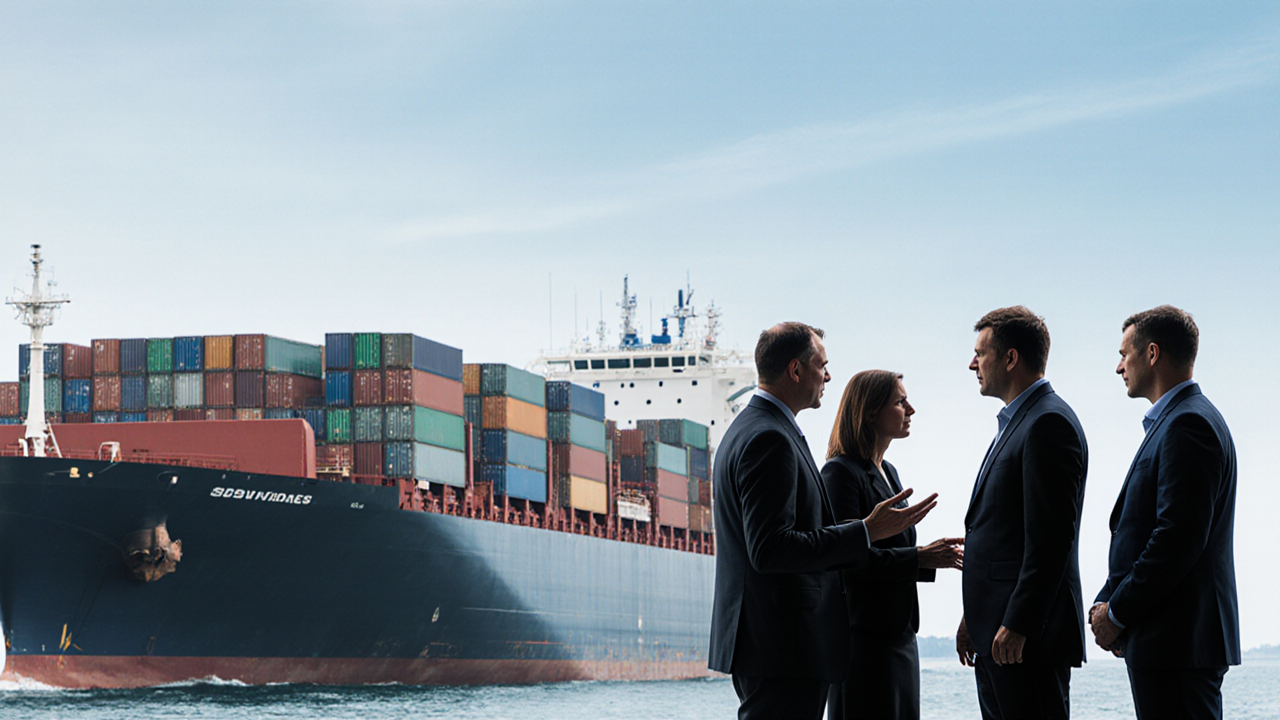
The maritime sector is at a crossroads. When the International Maritime Organization (IMO) recently proposed a net‑zero emissions framework for global shipping, a coalition of leading logistics experts cautioned that rejecting the plan could trigger a cascade of operational, regulatory, and financial disruptions. The maritime industry, which carries more than 90 % of international trade by volume, contributes roughly 3 % of global greenhouse gas emissions—a figure that is set to rise unless decisive action is taken. The warning is not merely about environmental stewardship; it speaks directly to the resilience and profitability of supply chains worldwide.
Why This Matters for Your Supply Chain
The IMO’s framework outlines a pathway to zero CO₂ emissions by 2050, mandating a shift from heavy fuel oil to low‑carbon alternatives such as LNG, ammonia, and hydrogen. For supply chain leaders, the implications are twofold. First, compliance will drive capital expenditure on new vessels, retrofits, and port infrastructure, reshaping the cost structure of freight operations. Second, the regulatory environment will evolve, creating a competitive advantage for firms that can demonstrate early and measurable progress toward science‑based targets. In essence, the decision to adopt or reject the framework will determine whether logistics networks can remain agile and cost‑effective in a rapidly tightening emissions landscape.
The Real Impact on Operations
Operationally, the transition to cleaner fuels and energy‑efficient technologies will require a re‑engineering of vessel design, bunkering logistics, and crew training. Shipping companies that invest in hybrid propulsion systems and advanced energy management platforms can expect to reduce fuel consumption by up to 30 % over the next decade. Moreover, the adoption of digital twins and predictive analytics will enable real‑time optimization of routes and cargo loads, further tightening margins. Conversely, firms that delay adoption risk being locked into legacy fuel contracts, facing higher compliance costs and potential penalties as global standards tighten.
What Supply Chain Leaders Are Doing About It
Across the globe, leading logistics providers are embedding decarbonization into their core strategies. Many are forming joint ventures to develop ammonia bunkering stations, while others are leveraging data analytics to identify high‑emission segments within their networks. A growing trend is the integration of blockchain‑enabled transparency tools that track emissions at every leg of the journey, providing stakeholders with verifiable sustainability metrics. These initiatives underscore a broader industry shift toward a circular, low‑carbon logistics ecosystem where technology and collaboration drive performance.
Strategic Recommendations for the Industry
To navigate this transition, supply chain executives should consider the following actions:
Invest in alternative fuel infrastructure at key ports, ensuring early access to low‑carbon bunkers and reducing supply chain bottlenecks.
Adopt digital platforms that enable end‑to‑end emissions tracking, allowing for data‑driven decision making and transparent reporting to regulators and investors.
Cultivate partnerships with vessel owners, fuel suppliers, and technology providers to share the financial burden of decarbonization and accelerate innovation.
By embedding these practices into their operational DNA, firms can not only mitigate regulatory risk but also unlock new efficiencies, improve brand reputation, and position themselves as leaders in a sustainable future.
The Bottom Line
The IMO’s net‑zero framework is more than a policy proposal; it is a strategic inflection point that will redefine the maritime industry’s operational paradigm. Rejecting the framework risks exposing supply chains to escalating costs, regulatory penalties, and reputational damage. Embracing the transition, on the other hand, offers a pathway to enhanced competitiveness, reduced carbon footprints, and stronger stakeholder trust. For senior leaders steering global logistics, the choice is clear: act now to secure a resilient, low‑carbon future or face the uncertain consequences of inaction.
Loading comments...